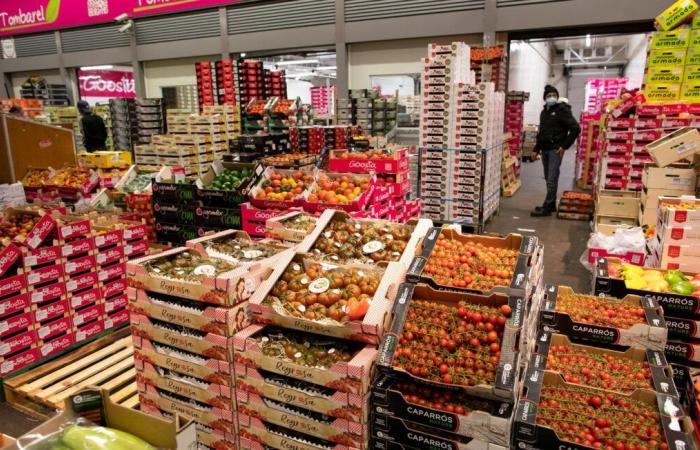
A study by the Parisian Urban Planning Workshop (Apur) is sounding the alarm. According to it, published Tuesday, in the event of a natural disaster such as flooding, or a blockade, Paris would have food to feed its inhabitants for only five to seven days, due to a lack of sufficient storage capacity.
This study, the first of its kind in France, was initiated by Paris City Hall as part of its “resilience strategy” launched in 2022 to anticipate, with the prefecture, various crisis scenarios.
A “rather reassuring” figure, according to the town hall
“The disruption of supply has been identified as a major risk” that the Covid-19 health crisis and the threats of blocking farmers in 2023 have highlighted, explains Pénélope Komitès, deputy mayor of Paris in charge of resilience and foresight. But authorities had no reliable data on food resilience. “We were talking about three days of autonomy, without knowing where this figure came from,” she explains. According to the work of Apur, revealed by The Parisianthis autonomy would be “five to seven days”, which the elected official finally judges “rather reassuring”.
The need was estimated at 3,090 tonnes of food to feed the 2,146,000 Parisians and provide 6.5 million meals every day. These figures were compared with an estimate of the stocks necessary to meet these needs. With three main sources of supply: individual cupboards (between 1.5 and 5 days of reserves), shops and collective catering (two days) and food logistics warehouses (also two days).
“The interest is to identify what we can store locally, to know how to continue to supply the capital in the event of a disaster, such as a flood of the Seine, or a road or rail blockade,” analyzes the director of the Apur Alexandre Labasse.
A “Rungis bis” under study
The capital has gradually lost its storage capacity, observes this architect, citing the elimination of places like the Grand Moulins. “During Covid when there was no more pasta or toilet paper in supermarkets, we realized that our entire system was based on flow,” also notes Alexandre Labasse. As opposed to the “logic of stock, at the origin of the first cities of Mesopotamia which preserved the harvests”.
The town hall is working on scenarios to achieve “an autonomy of 100 days”, by identifying potential “attics” such as certain disused car parks, explains Pénélope Komitès. The creation of a “Rungis bis” – a second food market storage location – north of Paris is also being studied, in case a flood of the Seine cuts the metropolis in two.





